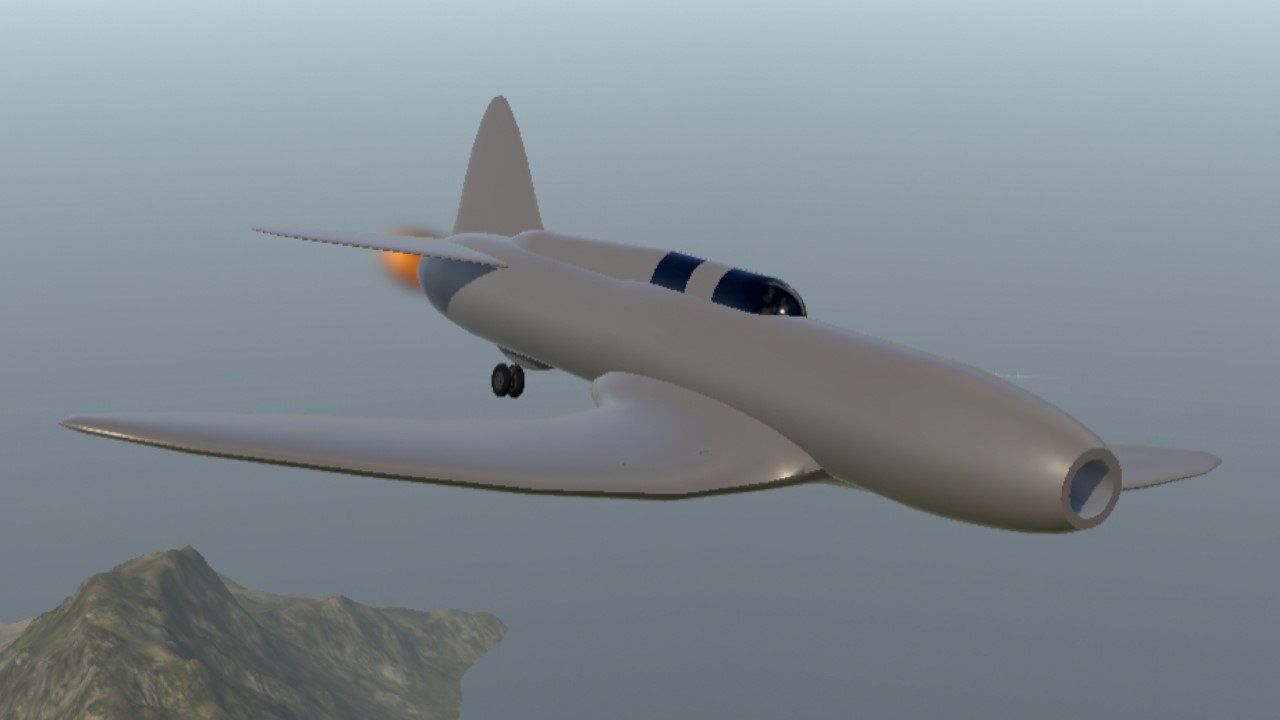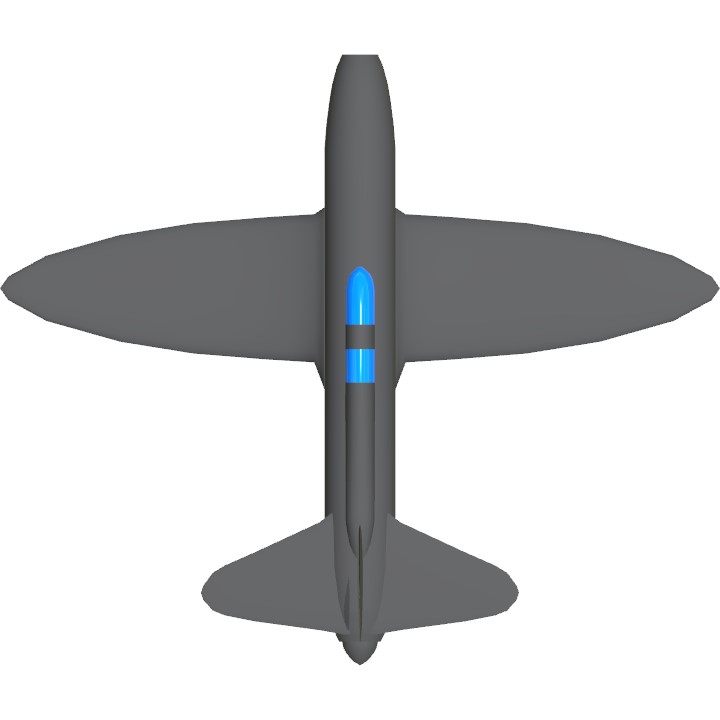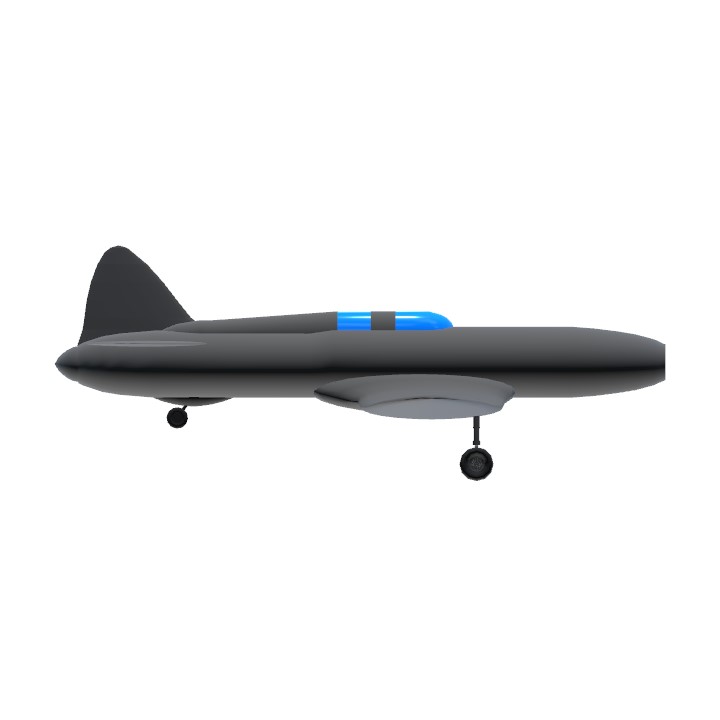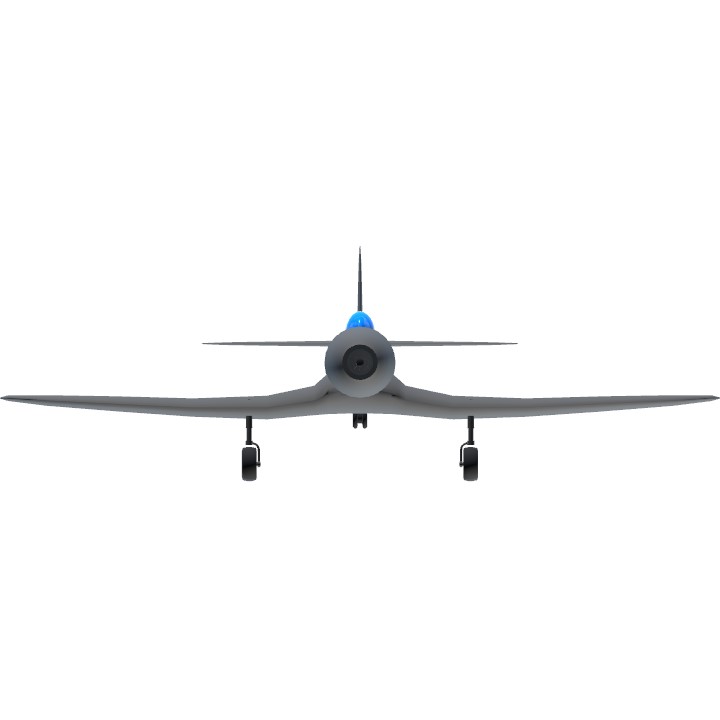Introductions:
Caproni Campini N.1, also known as the C.C.2, is an experimental jet aircraft built in the 1930s by Italian aircraft manufacturer Caproni. The N.1 first flew in 1940 and was briefly regarded as the first successful jet-powered aircraft in history, before news emerged of the German Heinkel He 178's first flight a year earlier.
During 1931, Italian aeronautics engineer Secondo Campini submitted his studies on jet propulsion, including a proposal for a so-called thermo-jet to power an aircraft. Following a high-profile demonstration of a jet-powered boat in Venice, Campini was rewarded with an initial contract issued by the Italian government to develop and manufacture his proposed engine. During 1934, the Regia Aeronautica (the Italian Air Force) granted its approval to proceed with the production of a pair of jet-powered prototype aircraft. To produce this aircraft, which was officially designated as the N.1, Campini formed an arrangement with the larger Caproni aviation manufacturer.
The N.1 is powered by a motorjet, a type of jet engine in which the compressor is driven by a conventional reciprocating engine. On 27 August 1940, the first flight of the N.1 took place at the Caproni facility in Taliedo, outside of Milan, flown by Mario de Bernardi. On 30 November 1941 the second prototype was flown by De Bernardi and engineer Giovanni Pedace from Milan's Linate Airport to Rome's Guidonia Airport, in a highly publicised event that included a fly-past over Rome and a reception with Italian Prime Minister Benito Mussolini. Testing of the N.1 continued into 1943, when work on the project was disrupted by the Allied invasion of Italy.
The N.1 achieved mixed results; while it was perceived and commended as a crucial milestone in aviation (until the revelation of the He 178's earlier flight), the performance of the aircraft was unimpressive. Specifically, it was slower than some existing conventional aircraft of the era, while the motorjet engine was incapable of producing sufficient thrust to deliver adequate performance for a fighter aircraft. Campini embarked on further projects, such as the Reggiane Re.2007, but these involved the indigenously-developed motorjet being replaced with a German-provided turbojet. As such, the N.1 programme never led to any operational combat aircraft, and the motorjet design was soon superseded by more powerful turbojets. Only one of the two examples of the N.1 to have been constructed has survived to the present day
Trivia:
The engine of Campioni Campini N.1 is actually powered by a propeller, so this caused the speed of Campioni Campini N.1 we’re much slower than other jets, even slower than the propeller planes.
Thats it!
Specifications
Spotlights
- WinsWings 2.3 years ago
General Characteristics
- Predecessor WW2 Jets Challenge 8/23 [CLOSED]
- Created On iOS
- Wingspan 49.8ft (15.2m)
- Length 42.2ft (12.9m)
- Height 15.9ft (4.8m)
- Empty Weight 11,061lbs (5,017kg)
- Loaded Weight 14,628lbs (6,635kg)
Performance
- Power/Weight Ratio 0.23
- Horse Power/Weight Ratio 1.367
- Wing Loading 34.1lbs/ft2 (166.5kg/m2)
- Wing Area 428.9ft2 (39.8m2)
- Drag Points 7241
Parts
- Number of Parts 96
- Control Surfaces 5
- Performance Cost 1,919





@WaltySimplePlanes69 Understandable. Never noticed that, but still cool
Good build and handling, but turning on the engine causes my game's frame rate to suddenly drop for some reason
@Gabriel747 g55 series, mb339, AMX, Eurofighter, Tornado, F35 (yes, Italians worked on it too), G91
@Gabriel747 @SomeSPGuyWhoLikesLore @BaronVonBaron
Yeah, sometimes the Italian aesthetic is beyond most people's comprehension
Prettiest Italian aircraft:
Best jet ever “in my opinion”
Third
My God why are Italian planes so ugly?
Nice!